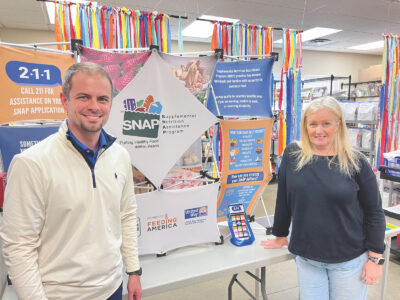Consumer alert issued
Flurry of scams flood Mid-Ohio Valley
The Better Business Bureau is warning residents of a timeshare scam that is using a local company name. The bureau has heard from consumers stating they were contacted by a representative from Resort Owners Services of 10150 East Pike, Cambridge to purchase their timeshares.
The consumers were given paperwork to sign and then asked to send money to a bank in Mexico to cover title searches, closing costs and other areas associated with buying a timeshare. Once the transfers were complete, information and finances were available for the scammer. One consumer reports a loss of $22,500 in the scam.
According to a press release from the bureau, they have been in contact with David W. T. Carroll, the statutory agent for Resort Owners Services LLC and their legal counsel. He has stated the legitimate company was an internal organization that provided services to a family of membership campground resorts, but shut down operations in 2012 and has not been at the Cambridge address since that time. He stated the company never entered into any contracts with the public.
If anyone believes they have fallen victim to this scam, the bureau advises them to report it with its Scam Tracker at bbb.org/scamtracker as well as file a complaint with your state Attorney General office and local law enforcement.
This isn’t the only scam circulating through the Mid-Ohio Valley. Early Wednesday morning, Ashley Kimes, dispatcher for the Washington County Sheriff’s Office, said she had received two calls already about an IRS scam circulating through Washington County.
“Someone is calling residents and trying to scare them into giving personal information out,” she said. “The individual calling says that a warrant will be issued for their arrest if they don’t cooperate and send money to them immediately but this is a scam. These scam artists are trying to scare residents into sending money back to them.”
Thieves call taxpayers claiming to be IRS officials. They demand that the victim pay a tax bill and con the victim into sending cash, usually through a prepaid debit card or wire transfer.
“This is very common in our area and it seems that the scammer goes through a phone list in the area,” said Kimes. “One day all our calls will be from the Little Hocking area and then the next day, they’ll come from another area.”
Other scams have also been reported lately.
A report was made to the Marietta Police Department that an elderly male was sent credit cards that he did not apply for in his name in a FedEx package. He was later contacted and requested to send the cards back to a specified general address “as the cards were issued in error.”
“Basically this gentleman received credit cards in the mail and then activated these credit cards,” said Sgt. Errol Kramer of the Marietta Police Department. “He was then asked to send those cards back. Someone got this gentleman’s personal information and likely used it to apply for credit cards which were approved and sent back.”
According to Kramer, the investigation is still ongoing.
“Until this man receives any type of bill for what the credit cards are being used for, we don’t know what’s going to happen,” he said. “That investigation is sort of put on the back burner for right now until something else happens. If you didn’t apply for a credit card but receive one, don’t activate it.”
The top scams in the United States are overpayment scams, check fraud, emergency scams, employment scams, advance fee and payment scams, phishing scams, sweepstakes and lottery scams, sales and rental scams and identity theft, according to the Better Business Bureau.
“We see the IRS scam a lot in the area,” said Kramer. “We also find victims to either have little life experience with the younger generation or our residential seniors.”
Kramer advises anyone to keep personal information safe.
“Any documents that have personal information on them should be shredded or burned,” he said. “I’d even go as far as to say utility bills should be disposed of in a way that is untraceable back to you. If you believe that a fraudulent check or credit card has been sent to you, I would run it by your financial institution, then get a hold of us.”
Ways to avoid a scam
¯Never send money to people you haven’t met in person.
¯Never send money to pay for taxes or fees on lottery or prize winnings.
¯Never use a test question as an additional security measure to protect your transaction.
¯Never provide your banking information to people or businesses you don’t know.
¯Never send money in advance to obtain a loan or credit card.
¯Never send money for an emergency situation without verifying that it’s a real emergency.
¯Never send funds from a check in your account until it officially clears–which can take weeks.
¯Never send a money transfer to an individual for online purchases.
Source: Western Union.





